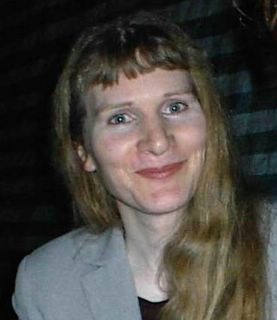Saturday, October 11, 2008
THE AMAZING TRUTH ABOUT QUEEN RAQUELA
Directed by: Olaf de Fleur Johannesson
http://www.queenraquelathemovie.com/
This film generally caused a strong reaction among trans women in Iceland. The first conclusion was that the film is about the porno industry. After some discussions with the people associated with the film, it appeared that would be gross simplification of the film. It would only have been possible to tell this story, by having Raquela in it. Raquela’s life is the canvas that the picture of the porno industry is painted upon.
Even though the film about Raquela is fiction, it is about real people, and real events that are happening in our times. Like so many fairy tales, it is hardly for sensitive souls.
Frankly and without any pity, the film describes her life struggle, her fairy tale dreams about a better life, and a gritty reality. The story is usually in third person and often as an interview. In some scenes, it is as if the viewer becomes Raquela’s confidante and her reality becomes almost palpable.
The amazing truth about Raquela is that the film is primarily about the porno industry and how a transwoman becomes involved in it and becomes a part of it.
The first information in the film about Queen Raquela, are the ancient myths about transsexual women that defended monarchy and patriarchy. Today they are just in low wage jobs and prostitution, even if though there are lots of jobs in defending dictators and the patriarchy. The term is not a legally protected designation of specialisation, so all kinds of terms are splashed back and forth, having only one thing in common that they sort under the term transgender. Then the mixture is poured into philipinese and english tounges, with somewhat disproportionate results.
Decades of dictatorship and the double standards of the catholic church and the oppression of military dictatorship, and war has put its mark on the philipinese people. In Cebu city, Raquela lives, seemingly in vaacum and without any significant relations with her family or her home. Raquela was born a boy but feels she is a girl. She has had some female hormones for some years, but the film is completely silent about any bodily changes. She wants to be forever young and attractive, so that men will love her so that she can feel she is a woman. Her environment and of her friends are the streets and those places where they are not rejected. She is scared to work the streets, because of the risk of some pricks throwing something like bottles at her. She dreams of escaping prostitution, travel to Paris and meet the man of her dreams.
Pivoting to the story, Michael runs a profitable international business that markets young women like Raquela on a porno site on the internet. With his photographers assistance, he
controls her training as a prostitute. He thinks she will do well if she just does as she is told. She is trained to be a walking talking living object, accessible through the internet.
Michael thinks little of her dreams and thinks they are more of ghosts than dreams. Similarly her mother thinks she has no future in the Philippines. The risk to her life is implied by sorrowful tones of a cello and violin that are similar to “Lux Aeterna” (en: The Eternal Light) by Clint Mansell in the film “Requiem For A Dream” a soul mass for a dream. This is by the composer Pavel E. Smid that also has some works in the film “The Higher Force”.
Due to much use of interviews, it is easy to forget that the film is based on true events, rather than being a documentary about them. By mixing the documentary form and the fiction form, the filmmaker transcends the gap between those opposite poles, possibly symbolic for the narrative. Using this form, the filmmaker achieves different effect than would have been possible in a fiction only film. The film has won prizes, most noably among international films for the best storytelling tecnique, “The Best International Narrative Feature Award” at the New York LGBT Film Festival 2008 with an emphasis on that the prize is among other things, for the ability to blend documentary and fiction. (http://www.newfest.org/)
It will be very interesting to see this narrative feature used in other films.
Published: 10. october 2008
-- For Trans Iceland, the society of transgender people in Iceland,
Anna Jonna Ármannsdóttir.
